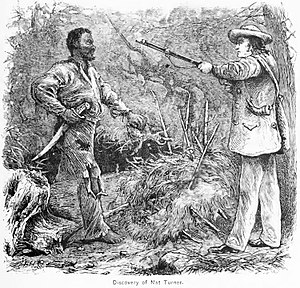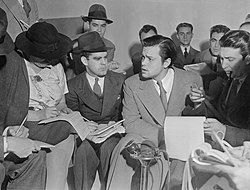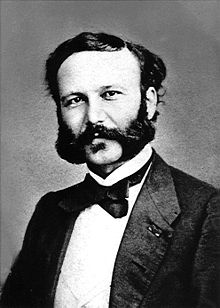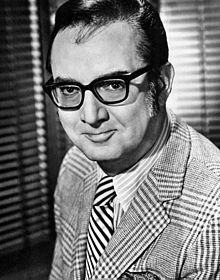
October 30 is the 303rd day of the year (304th in leap years) in the Gregorian calendar. There are 62 days remaining until the end of the year.
Holidays
- Day of Remembrance of the Victims of Political Repressions (former Soviet republics, except Ukraine)
- International Orthopaedic Nurses Day
- Mischief Night (United States)
- Thevar Jayanthi (Thevar community)
History
In 637, Antioch surrenders to the Muslim forces under Rashidun Caliphate after the Battle of the Iron Bridge.
In 758, Guangzhou is sacked by Arab and Persian pirates.
In 1137, Battle of Rignano between Ranulf of Apulia and Roger II of Sicily.
In 1270, The Eighth Crusade and siege of Tunis end by an agreement between Charles I of Sicily (brother to King Louis IX of France, who had died months earlier) and the sultan of Tunis.
In 1340, Portuguese and Castilian forces halt a Marinid invasion at the Battle of Río Salado.
In 1485, King Henry VII of England is crowned.
In 1501, Ballet of Chestnuts: A banquet held by Cesare Borgia in the Papal Palace where fifty prostitutes or courtesans are in attendance for the entertainment of the guests.
In 1534, English Parliament passes Act of Supremacy, making King Henry VIII head of the English church – a role formerly held by the Pope.
The Acts of Supremacy are two acts passed by the Parliament of England in the 16th century that established the English monarchs as the head of the Church of England; two similar laws were passed by the Parliament of Ireland establishing the English monarchs as the head of the Church of Ireland. The 1534 Act declared King Henry VIII and his successors as the Supreme Head of the Church, replacing the Pope. This first Act was repealed during the reign of the Catholic Queen Mary I (from July 1553 until her death in 1558). The 1558 Act declared Queen Elizabeth I and her successors the Supreme Governor of the Church, a title that the British monarch still holds.
In 1657, Spanish forces fail to retake Jamaica at the Battle of Ocho Rios during the Anglo-Spanish War.
In 1806, Believing he is facing a much larger force, Prussian Lieutenant General Friedrich von Romberg, commanding 5,300 men, surrendered the city of Stettin to 800 French soldiers commanded by General Lassalle.
In 1817, The independent government of Venezuela is established by Simón Bolívar.

In 1831, In Southampton County, Virginia, escaped slave Nat Turner is captured and arrested for leading the bloodiest slave rebellion in United States history.
In 1863, Danish Prince Wilhelm arrives in Athens to assume his throne as George I, King of the Hellenes.
In 1864, Second Schleswig War ends. Denmark renounces all claim to Schleswig, Holstein and Lauenburg, which come under Prussian and Austrian administration.
In 1864 – Helena, Montana is founded after four prospectors discover gold at “Last Chance Gulch”.
In 1888, Rudd Concession granted by King Lobengula of Matabeleland to agents of Cecil Rhodes led by Charles Rudd.
In 1894, Domenico Melegatti obtains a patent for a procedure to be applied in producing pandoro industrially.

In 1899, William H. Webb, American shipbuilder and philanthropist (b. 1816) died suddenly at his home, 415 Fifth Avenue, on 30 October 1899. He was survived by a son, William E. Webb. Another son, Marshall, had died the previous year. He was a 19th-century New York shipbuilder and philanthropist, who has been called America’s first true naval architect.
Webb inherited his father’s shipyard, Webb & Allen, in 1840, renamed it William H. Webb, and turned it into America‘s most prolific shipyard, building 133 vessels between 1840 and 1865. Webb designed some of the fastest and most successful sailing packets and clipper ships ever built, and he also built some of the largest and most celebrated steamboats and steamships of his era, including the giant ironclad USS Dunderberg, in its day the world’s longest wooden-hulled ship.
After the American Civil War, the U.S. shipbuilding industry experienced a prolonged slump, and Webb, having already made a considerable fortune, decided to close his shipyard and turn his energies toward philanthropic goals. He chaired an anti-corruption council, became a founding member of the Society of Naval Architects and Marine Engineers, and established the Webb Academy and Home for Shipbuilders, which today is known as the Webb Institute.
In 1905, Czar Nicholas II of Russia grants Russia’s first constitution, creating a legislative assembly.
In 1910, Henry Dunant, Swiss activist, founded the Red Cross, Nobel Prize laureate (b. 1828) died in a nursing home in Heiden at the age of 82. He also known as Henry Dunant, was a Swiss businessman and social activist. During a business trip in 1859, he was witness to the aftermath of the Battle of Solferino in modern-day Italy. He recorded his memories and experiences in the book A Memory of Solferino which inspired the creation of the International Committee of the Red Cross (ICRC) in 1863. The 1864 Geneva Convention was based on Dunant’s ideas. In 1901 he received the first Nobel Peace Prize together with Frédéric Passy.
In 1912, James S. Sherman, American lawyer and politician, 27th Vice President of the United States (b. 1855) died due to his steadily worsening kidney condition (Bright’s disease). Just days before the election, he died at home in Utica. He was a United States Representative from New York and the 27th Vice President of the United States (1909–1912), under President William Howard Taft. He was a member of the inter-related Baldwin, Hoar, and Sherman families, prominent lawyers and politicians of New England.
Although not a high-powered administrator, he made a natural committee chairman, and his genial personality eased the workings of the House, so that he was known all his life as ‘Sunny Jim’. He was the first Vice President to fly in a plane (New York, 1911), and also the first to throw out the ceremonial first pitch at a baseball game.
To date, Sherman is the last Vice President to have died in office
In 1918, The Ottoman Empire signs an armistice with the Allies, ending the First World War in the Middle East.
In 1920, The Communist Party of Australia is founded in Sydney.
In 1922, Benito Mussolini is made Prime Minister of Italy.
In 1925, John Logie Baird creates Britain’s first television transmitter.
In 1929, The Stuttgart Cable Car is constructed in Stuttgart, Germany.

In 1938, Orson Welles broadcasts his radio play of H. G. Wells‘s The War of the Worlds, causing anxiety in some of the audience in the United States. “The War of the Worlds“ was a Halloween episode of the radio series The Mercury Theatre on the Air directed and narrated by Orson Welles as an adaptation of H. G. Wells‘s novel The War of the Worlds (1898). It was performed and broadcast live at 8 pm ET on October 30, 1938 over the CBS Radio Network. The episode is famous for inciting a panic by convincing some members of the listening audience that a Martian invasion was taking place, though the scale of panic is disputed, as the program had relatively few listeners.
In 1941, World War II: Franklin Delano Roosevelt approves U.S. $1 billion in Lend-Lease aid to the Allied nations.
In 1941 – One thousand five hundred Jews from Pidhaytsi (in western Ukraine) are sent by Nazis to Bełżec extermination camp.
In 1942, Lt. Tony Fasson, Able Seaman Colin Grazier and canteen assistant Tommy Brown from HMS Petard board U-559, retrieving material which would lead to the decryption of the German Enigma code.
In 1944, Anne Frank and sister Margot Frank are deported from Auschwitz to the Bergen-Belsen concentration camp.
In 1945, Jackie Robinson of the Kansas City Monarchs signs a contract for the Brooklyn Dodgers to break the baseball color barrier.
In 1947, The General Agreement on Tariffs and Trade (GATT), which is the foundation of the World Trade Organisation (WTO), is founded.
In 1950, Pope Pius XII witnesses the “Miracle of the Sun” while at the Vatican.
In 1953, Cold War: U.S. President Dwight D. Eisenhower formally approves the top secret document National Security Council Paper No. 162/2, which states that the United States’ arsenal of nuclear weapons must be maintained and expanded to counter the communist threat.
In 1960, Michael Woodruff performs the first successful kidney transplant in the United Kingdom at the Edinburgh Royal Infirmary.
In 1961, Nuclear testing: The Soviet Union detonates the hydrogen bomb Tsar Bomba over Novaya Zemlya; at 50 megatons of yield, it is still the largest explosive device ever detonated, nuclear or otherwise.
In 1961, Because of “violations of Lenin‘s precepts”, it is decreed that Joseph Stalin‘s body be removed from its place of honour inside Lenin’s tomb and buried near the Kremlin Wall with a plain granite marker instead.
In 1965, English model Jean Shrimpton causes a global sensation by wearing a daring white minidress to Derby Day at Flemington Racecourse in Melbourne, Australia.
In 1965, Vietnam War: Close to Da Nang, United States Marines repel an intense attack by Viet Cong forces, killing 56 guerrillas.
In 1968, Rose Wilder Lane, American journalist and author (b. 1886) died in her sleep at the age of eighty-one, on October 30, 1968, just as she was about to depart on a three-year world tour. She was an American journalist, travel writer, novelist, and political theorist. She is noted – with Ayn Rand and Isabel Paterson – as one of the founding mothers of the American libertarian movement. She was also the first child of Laura Ingalls Wilder and Almanzo Wilder (and their only child to survive into adulthood). She collaborated with her mother in writing her mother’s famous Little House on the Prairie series of books (the basis for the television show, Little House On the Prairie).
She vehemently opposed the New Deal, perceived “creeping socialism,” Social Security, wartime rationing and all forms of taxation, claiming she ceased writing highly paid commercial fiction to protest paying income taxes. Living on her small salary from her newspaper column, and no longer needing to support her parents or adopted sons, she cut expenses to the bare minimum, and lived a modern-day version of her ancestors’ pioneer life on her rural land near Danbury, Connecticut. She gained some media attention for her refusal to accept a ration card, instead working cooperatively with her rural neighbors to grow and preserve fruits and vegetables, and to raise chickens and pigs for meat.
A staunch opponent of communism after experiencing it first hand in the Soviet Union during her Red Cross travels, Lane’s initial writings on individualism and conservative government began while she was still writing popular fiction in the 1930s, and culminated with the seminal The Discovery of Freedom (1943). After this point, she tirelessly promoted and wrote about individual freedom, and its impact on humanity. The same year also saw the publication of Isabel Paterson‘s The God of the Machine and Ayn Rand‘s novel The Fountainhead, and the three women have been referred to as the founding mothers of the American libertarian movement with the publication of these works.
In 1970, In Vietnam, the worst monsoon to hit the area in six years causes severe floods, kills 293, leaves 200,000 homeless and virtually halts the Vietnam War.
In 1972, A collision between two commuter trains in Chicago kills 45 and injures 332.
In 1973, The Bosphorus Bridge in Istanbul, Turkey is completed, connecting the continents of Europe and Asia over the Bosphorus for the second time.
In 1974, The Rumble in the Jungle boxing match between Muhammad Ali and George Foreman takes place in Kinshasa, Zaire.
In 1974, As a member of the California Angels, Major League Baseball player Nolan Ryan throws the fastest recorded pitch, at 100.9 MPH.
In 1975, Prince Juan Carlos becomes Spain’s acting head of state, taking over for the country’s ailing dictator, Gen. Francisco Franco.
In 1980, El Salvador and Honduras sign a peace treaty to put the border dispute fought over in 1969‘s Football War before the International Court of Justice.
In 1983, The first democratic elections in Argentina after seven years of military rule are held.
In 1985, Space Shuttle Challenger lifts off for mission STS-61-A, its final successful mission.
In 1985, Kirby Grant, American actor (b. 1911) was killed in an automobile accident near Titusville in Brevard County, Florida, at the age of seventy-three. He was born Kirby Grant Hoon, Jr., was a long-time B movie and television actor, mostly remembered for having played the title role in the Western-themed adventure television series Sky King. Between 1949 and 1954, Grant played the title role in the series of ten Corporal Rod Webb films
In 1987, In Japan, NEC releases the first 16-bit (fourth generation) video game console, the PC Engine, which is later sold in other markets under the name TurboGrafx-16.
In 1991, The Madrid Conference for Middle East peace talks opens.
In 1993, The Troubles: The Ulster Defence Association, an Ulster loyalist paramilitary, carry out a mass shooting at a Halloween party in Greysteel, Northern Ireland. Eight civilians are murdered and thirteen wounded.
In 1995, Quebec citizens narrowly vote (50.58% to 49.42%) to remain a province of Canada in their second referendum on national sovereignty.
In 2000, Steve Allen, American actor and singer (b. 1921) dies. He was an American television personality, musician, composer, actor, comedian, and writer. Though he got his start in radio, Allen is best known for his television career. He first gained national attention as a guest host on Arthur Godfrey’s Talent Scouts. He graduated to become the first host of The Tonight Show, where he was instrumental in innovating the concept of the television talk show. Thereafter, he hosted numerous game and variety shows, including The Steve Allen Show, I’ve Got a Secret, and The New Steve Allen Show, and was a regular panel member on CBS’ What’s My Line?
Allen was a credible pianist and a prolific composer, having penned over 14,000 songs, one of which was recorded by Perry Como and Margaret Whiting, others by Steve Lawrence and Eydie Gorme, Les Brown, and Gloria Lynne. Allen won a Grammy award in 1963 for best jazz composition, with his song The Gravy Waltz. Allen wrote more than 50 books, has two stars on the Hollywood Walk of Fame and a Hollywood theater named in his honor.
Allen’s death occurred after Allen was driving to his son’s home in Encino, California when his 1993 Cadillac Seville was struck by a Lexus SUV backing out of a driveway. Neither Allen nor the other driver believed he was injured and damage to both vehicles was minimal, so the two exchanged insurance information and Allen continued on.
Shortly after arriving at his son’s home he appeared to be a little confused and shaky. He told his family he was not feeling well and lost his balance when climbing up the six steps of the front porch. He sat on the sofa for a few minutes, appeared better and was talking with family members. He walked into the kitchen to talk with other family and then said he was going to the bathroom. He didn’t mention anything about the car crash.
After not returning in a short time, his son became concerned, and when there was no response to knocking at the door, he entered the bathroom. Allen was found sitting on the toilet slumped to one side and making a snoring sound. He was moved to the floor and 911 was called. Paramedics were summoned, but could not revive Allen. The postmortem revealed that he had not suffered major injuries from the car accident (broken ribs and a collapsed lung were the result of attempted CPR) and the cause of death was a massive heart attack caused by a hemopericardium from a ruptured artery. Allen’s personal physician believed it had been triggered by shock due to the collision which was aggravated by his age and preexisting coronary artery disease. He had not bothered telling his family about the car accident, and they were unaware of it until after his death.
In 2005, The rebuilt Dresden Frauenkirche (destroyed in the firebombing of Dresden during World War II) is reconsecrated after a thirteen-year rebuilding project.

In 2007, John Woodruff, American runner and colonel (b. 1915) dies. He was an American middle-distance runner, winner of the 800 m event at the 1936 Summer Olympics. Woodruff was only a freshman at the University of Pittsburgh in 1936 when he placed second at the National AAU meet and first at the Olympic Trials (in the heat 1:49,9; WR 1:49,8), earning a spot on the U.S. Olympic team. Woodruff was a member of Alpha Phi Alpha fraternity. Despite his inexperience, he was the favorite in the Olympic 800 meter run, and he did not disappoint. In one of the most exciting races in Olympic history, Woodruff became boxed in by other runners and was forced to stop running. He then came from behind to win in 1:52.9. Woodruff graduated from the University of Pittsburgh in 1939, with a major in sociology. and then earned a master’s degree in the same field from New York University in 1941. He entered military service in 1941 as a second lieutenant and was discharged as a captain in 1945. He reentered military service during the Korean War, and left in 1957 as a lieutenant colonel. He was the battalion commander of the 369th Artillery, later the 569 Transportation Battalion New York Army National Guard. He worked as a teacher in New York City, a special investigator for the New York Department of Welfare, a recreation center director for the New York City Police Athletic League, a parole officer for the state of New York, a salesperson for Schieffelin and Co. and an assistant to the Center Director for Edison Job Corps Center in New Jersey.

In 2007, Robert Goulet, American actor and singer (b. 1933) dies of idiopathic pulmonary fibrosis, a rare but rapidly progressive and potentially fatal condition. He was an American singer and actor of French-Canadian ancestry. Goulet was born and raised in Lawrence, Massachusetts. Cast as Sir Lancelot and originating the role in the 1960 Broadway musical Camelot starring opposite established Broadway stars Richard Burton and Julie Andrews, he achieved instant recognition with his performance and interpretation of the song “If Ever I Would Leave You”, which became his signature song. His debut in Camelot marked the beginning of a stage, screen, and recording career. A Grammy Award, Tony Award, and an Emmy Award winner, his career spanned almost six decades.
Journalist Scott Simon, host of Weekend Edition Saturday on NPR, said in 2007:
A professional entertainer doesn’t give any less of himself just because the audience gets a little smaller. What Robert Goulet taught us … is that people who’ve been up and down are more interesting than people who are on their way up and think that’s the only direction life has. … He worked hard; he made people happy.
In 2013, Forty-five people die after a bus fuel tank catches fire in the Indian city of Mahabubnagar.
In 2014, Sweden is the first European Union member state to officially recognize the State of Palestine.
In 2015, 64 people are killed and more than 147 injuries after a fire in a nightclub in the Romanian capital Bucharest.






